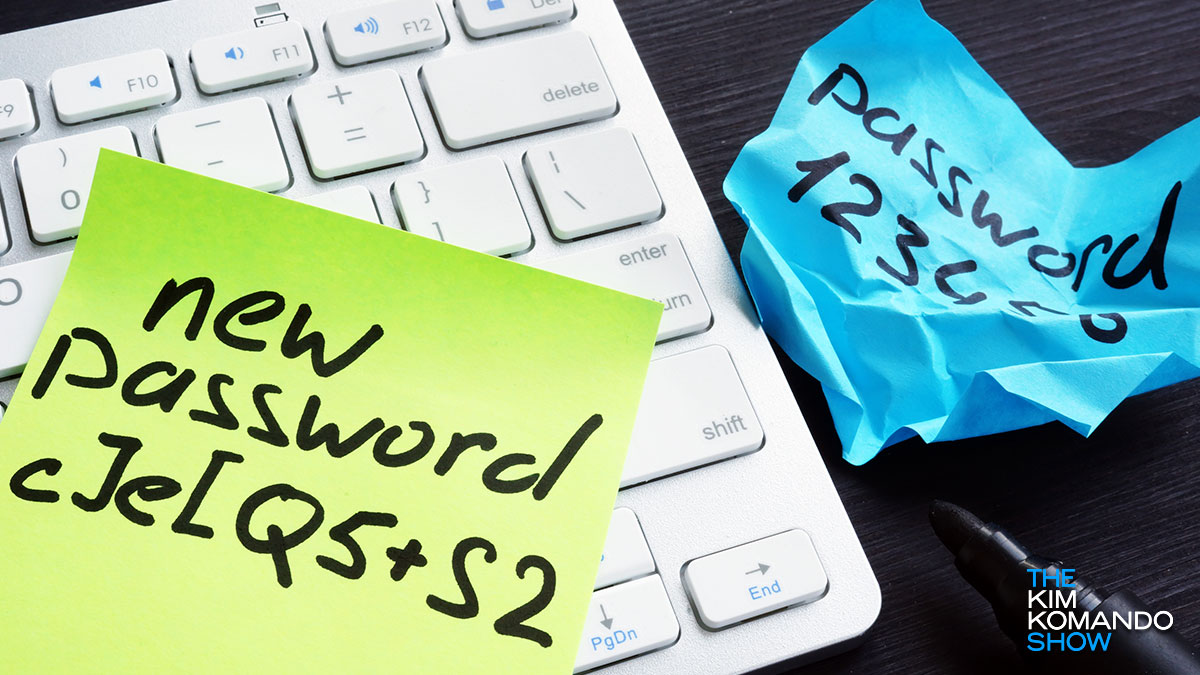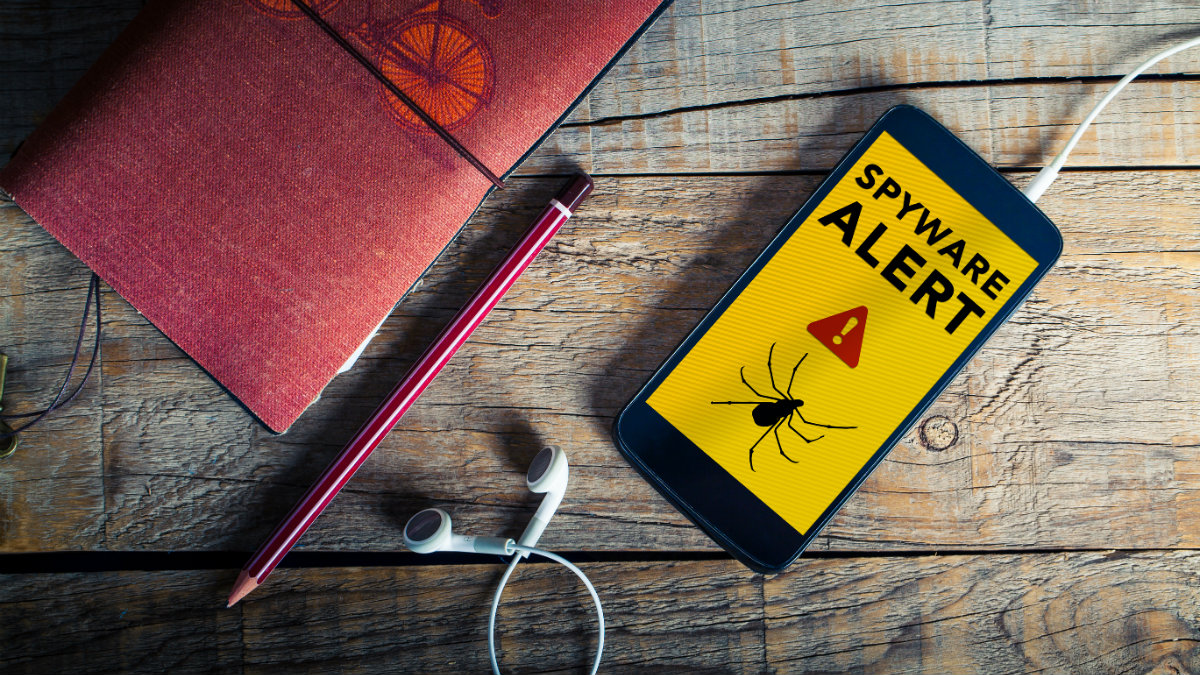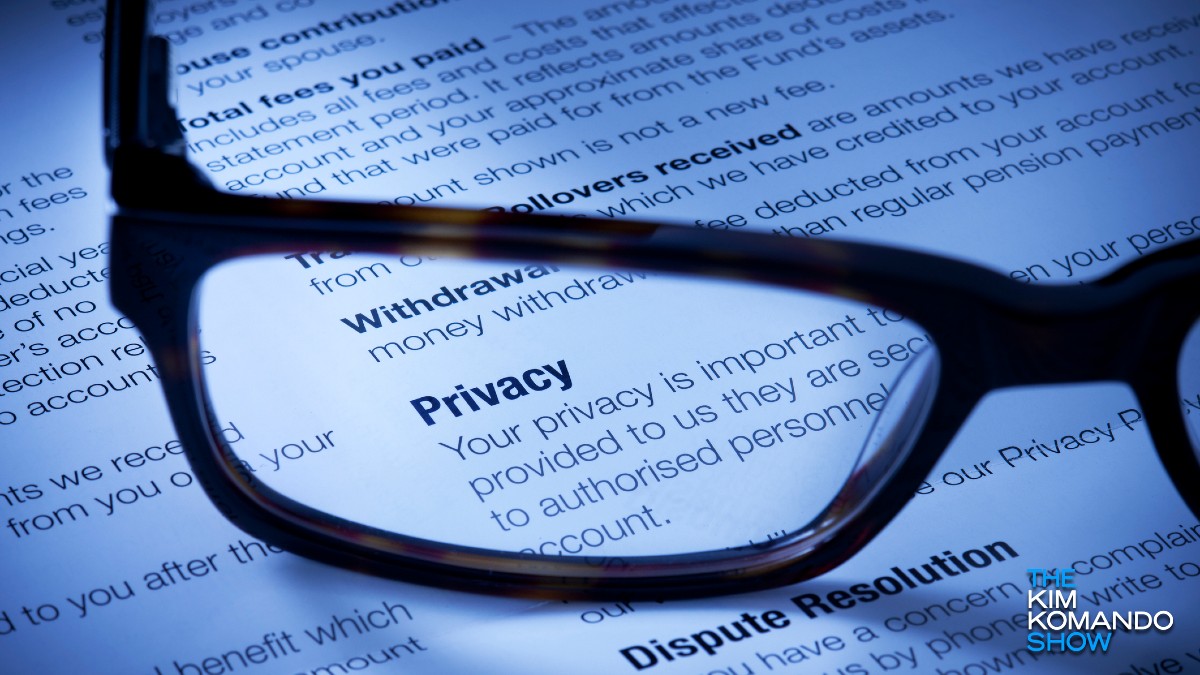For months cybercriminals have been cashing in on our collective coronavirus fears. Their schemes haven’t let up, and now the IRS is warning of a new, convincing scam spreading that could take even more money from the pockets of Americans.
Your passwords are exposed - here's what to do about it

Pop quiz: How many passwords do you use online? It’s probably more than you can remember right away, and most of the world is right there with you. According to a report from cybersecurity firm Digital Shadows, the average person uses 191 services that require passwords — and more than 15 billion stolen credentials are in circulation. That’s a 300% increase since 2018!
Because of this abundance of passwords, it’s no surprise that hackers and cybercriminals have made phishing campaigns a priority. After all, they’re one of the most effective ways to steal passwords and other data from hapless victims. Tap or click here to see why phishing scams are on the rise.
With so many scams and attacks targeting your passwords these days, it’s never been more important to protect your accounts. To help you stay safe, we’ll show you how you can make your passwords work to your advantage rather than against you. From complex passwords to security checkups, there’s no shortage of ways to stay one step ahead of cybercriminals.
Security warning: Your passwords are in grave danger
Digital Shadows’ password report paints a stark picture of the cybersecurity landscape in late 2020. There are 15 billion passwords — most of them stolen from more than 100,000 data breaches in recent years — floating around on the web waiting for anyone to try them.
In fact, this is one of the main methods hackers are using to crack into otherwise secure accounts. Programs like Sentry MBA and OpenBullet allow hackers to brute-force their way into accounts using hundreds of stolen passwords in sequence. Because so many passwords are repeated across platforms, odds are good that something among the 15 billion will open the lock.
How many passwords are repeated? Well, out of 15 billion analyzed by Digital Shadows, only 5 billion are unique! That means about 10 billion passwords are repeated across multiple accounts. And if a hacker is able to come up with a successful combination of username and password, you can bet they’ll try the same combination on other websites.
This isn’t the only grave news from Digital Shadows’ report, either. Here are a few sobering highlights that show just how dire the situation has become:
- Many passwords are given away by hackers for free, but the average password sells for around $15.43.
- Key systems belonging to major organizations are hot-ticket items, with some selling to the highest bidder for up to $140,000.
- Bank and financial accounts sell for an average of $70.91.
- Account accesses for antivirus software tend to go for around $21.67.
- Accounts for media streaming, social media, file sharing, virtual private networks (VPNs) and adult-content sites sell for well below $10 apiece.
- More than 2 million email addresses were exposed through financial invoices.
- Brute-force hacking tools sell for an average of $4 apiece, and entire identities can be “rented” for access online for around $10.
The solution? There are multiple ways to keep your accounts safe, but the primary one is using separate passwords for every single account.
This may be harder to remember, but you’ll be much safer if one of them happens to get leaked. Instead of all your accounts going down at once, you’ll only lose access to one at a time.
What other ways can I keep my account passwords safe?
10 COVID-19 scams spreading right now that people are falling for

The numbers are staggering. The Federal Trade Commission says coronavirus-related scams have cost Americans $13.4 million so far this year. Google blocks more than 100 million phishing emails every day as criminals try to steal money and personal information. About 18 million of them are coronavirus-related.
With $30B at stake, IRS issues dire scam warning
Video doorbell company is making a major privacy change you should know about

Living in a digital world makes it ridiculously difficult to protect our privacy. Cybercriminals do their best to trick unsuspecting victims into handing over sensitive information all the time, not to mention hackers who just steal it.
Hackers spreading fake coronavirus maps - use this one instead

There’s no shortage of panic now that the coronavirus has been classified as a pandemic. Stores are running out of supplies like bottled water, dried beans and even toilet paper.
Whenever huge events happen in the world, the dregs of society come out in full force — and the coronavirus outbreak is no different. Cybercriminals have been taking advantage of unsuspecting victims with tons of scams. Tap or click here to see a list of coronavirus scams out to get you.
How to spot and stop cyberthieves after your stimulus check
Cybercriminals have their minds on one thing right now: Getting into your wallet. And they’re working very hard to steal your $1,200 stimulus check. I’ll tell you how to stop them in their tracks.
Coronavirus: Clever ways criminals are using your fears against you
Misinformation, hoaxes and scams are rampant on the web. People are scared, and cybercriminals are taking advantage — hawking fake test kits, vaccines and financial aid, among other things. What do you need to know to stay safe? Kim talks to Tom Edwards, U.S. Secret Service Special Agent in Charge, and Lori Hodges, Vice President of North America Risk at Visa, about the dangers you’re facing online right now and the right steps to take if you’ve been scammed.
Watch out for these coronavirus scams
Fake news isn’t all you need to worry about. Scammers and cybercriminals are using our collective fears against us. Think twice if you get any of these calls, and do not — under any circumstances — hand over your credit card info.
9 security mistakes people make when working from home

COVID-19 got you working from home? If not, you might be soon. In cities where the virus has spread, local authorities are advising schools and businesses close temporarily to prevent further transmission.
That said, transitioning to working from home from working on-site is a complex task. Crewmember roles need to be adjusted for digital access and protocols must be in place to make sure work doesn’t slip through the cracks. Tap or click to find out how to prepare your business for coronavirus.
Macs now more attacked than Windows PCs
If you’re a Mac user, you probably believe you’re less at risk online than Windows users. Hate to break it to you, but that “common knowledge” just isn’t true anymore. If you have a Mac, don’t miss this — you may be more exposed to hackers and cybercriminals than you realize.
Spyware watches everything you do. Is your phone or computer infected?

Your everyday tech holds so much valuable information. Between your computer, smartphone and tablet, we’re talking precious photos, private files and enough personal data to make hackers come running.
And with more and more of our information stored digitally, we’re exposed like never before to cybercriminals who want to get their hands on it. One of the sneakiest ways they do it? Spyware.
CDs and LPs go digital, snooping spouses, social media alerts and more: Tech Q&A
Each week, I receive tons of questions from my listeners about tech concerns, new products and all things digital.
Sometimes, choosing the most interesting questions to highlight is the best part of my job. This week, I received questions about password protection for apps, covert social media searches, smartphone tracking, converting music collections and more.
New year, same dangerous digital world
It seems like there’s a new data breach or hack around every corner, and cybercriminals are always finding clever new ways to get their hands on your info. Here’s what you need to know to protect yourself this new year and beyond.
"It won't happen to me"
Viruses aren’t just bugs that spam your computer or shut down your system anymore. Hackers employ sophisticated attacks that can bring your whole digital life crashing down. Are you making the mistake of thinking cybercriminals won’t possibly come after you?
Top 10 privacy tips of 2019

Privacy is fundamental to a safe and worry-free life. Unfortunately, there’s little opportunity to live privately in today’s digital age. Companies are constantly after our personal data so they can build marketing profiles. Meanwhile, snoops and cybercriminals are looking for sinister ways to learn about you.
Move Alexa away from the window
There are a frightening number of ways cybercriminals can hack into our tech. But now they’ve got an even easier method to take over smart speakers — or really anything equipped with voice control. That’s pretty scary. I’ll tell you how it works.
Why small businesses are becoming the target of choice for cybercriminals
Think the small business you own or work for isn’t on the radar for hackers? Think again. I’ll tell you the most common attack and exactly how to avoid it.
The clever way hackers can hijack your phone and steal your info
Think about how much of your private info lives inside your phone. And with a clever trick, hackers can access all of it. In this episode of Komando on Demand, Kim explores the serious threat of hijacking smartphones and how cybercriminals can ruin your life. She talks with an ethical hacker about what you can do to safeguard your device.
Everything you need to know about the latest Windows update
There are more updates being released to Windows now than at any other point in the operating system’s lifespan. The reasons for this range from new apps and features all the way to cybersecurity concerns — but nobody can deny that Microsoft is stepping up its software game in a major way.
Revealed: Dark Web prices for stolen IDs
Take a guess — how much do you think cybercriminals would pay for your user names, passwords and other personal data? This is one area where you want to be undervalued. Kim has the story.